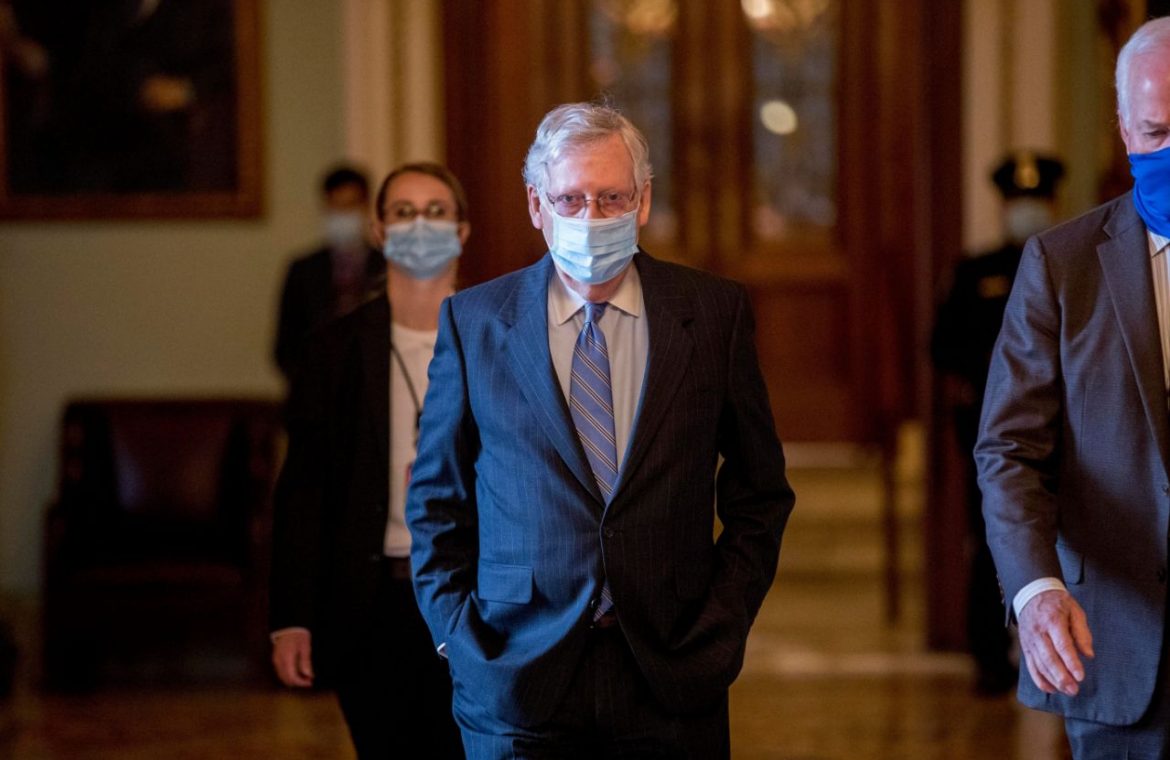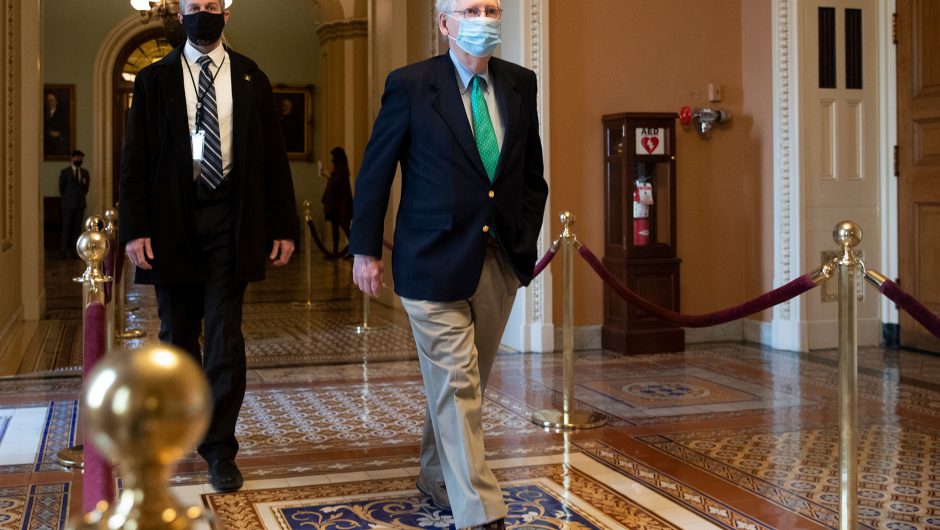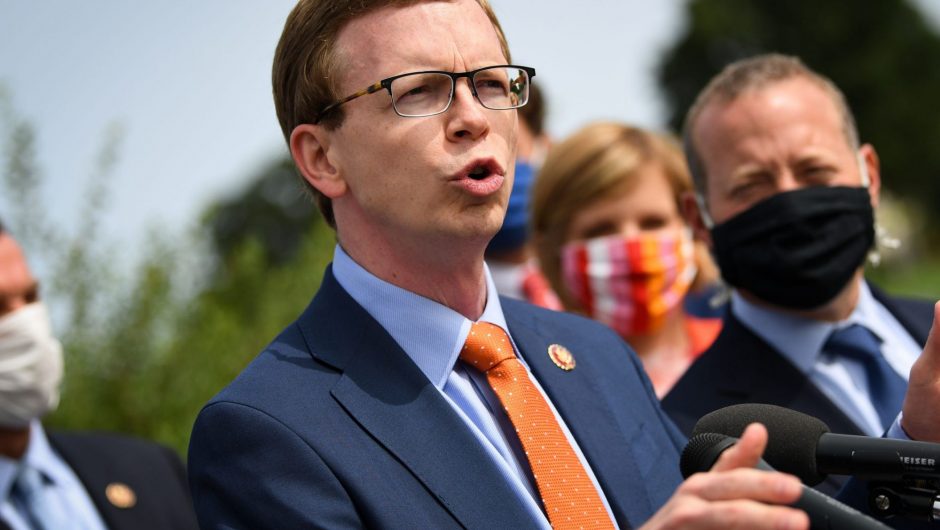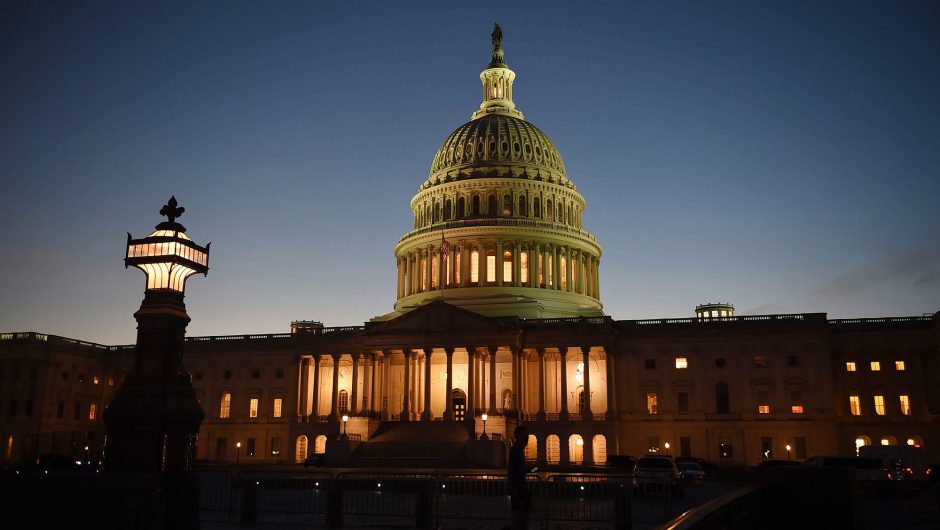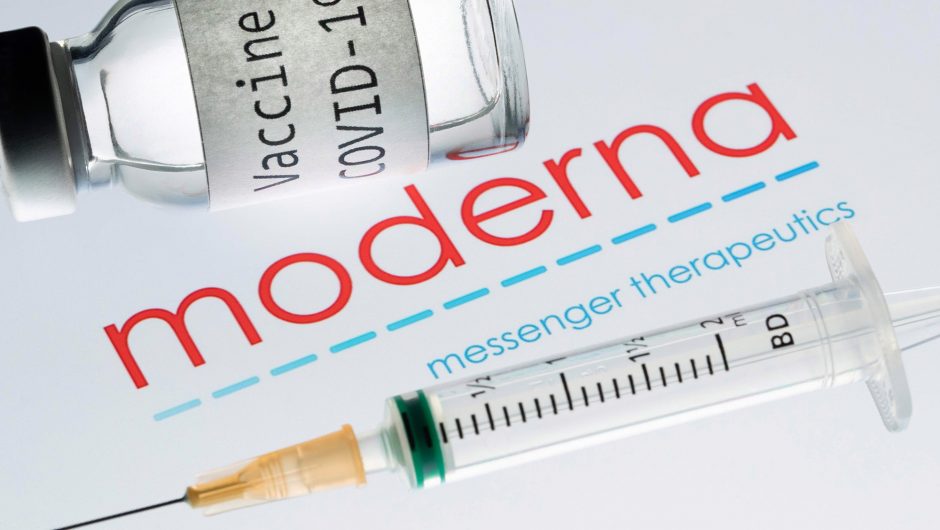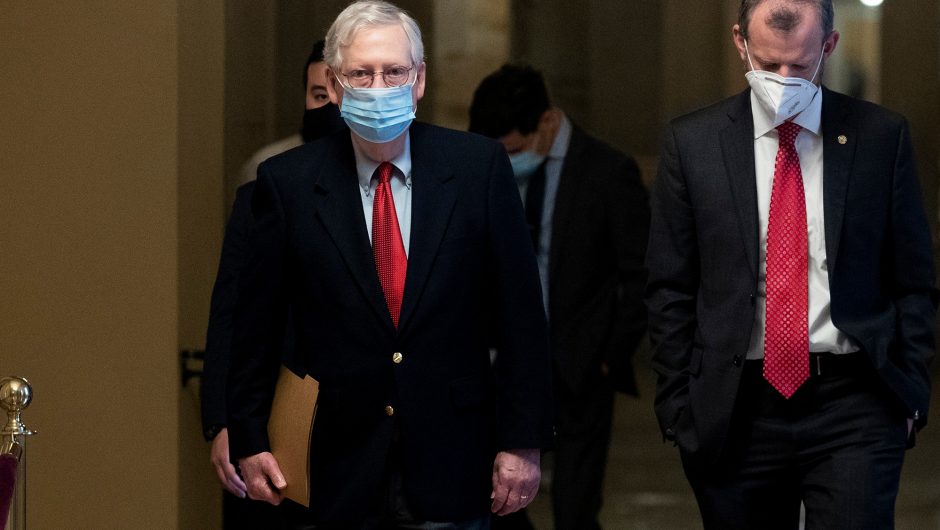WASHINGTON – The Senate failed Wednesday to pass a $500 billion COVID-19 aid package as negotiations drag on less than two weeks before Election Day.
The bill would have given a federal boost to weekly unemployment benefits, sent $100 billion to schools and allocated funding for testing and vaccine development. The vote was 51-44, short of the 60 votes required to allow the legislation to move forward. Nearly all Democrats opposed it over concerns that more money was needed to combat the virus and help Americans.
The bill’s $500 billion price tag was far less than the roughly $1.8 trillion package the White House offered and the $2.2 trillion package Democrats backed. The two parties have spent months attempting to find a bipartisan agreement for one last batch of coronavirus relief before the election.
The back-and-forth talks have been dizzying: Negotiations have appeared dead only to be revived with optimism and more talks between Treasury Secretary Steven Mnuchin and House Speaker Nancy Pelosi, D-Calif.
Senate Majority Leader Mitch McConnell who blamed Democrats for standing in the way of a compromise, told fellow Republicans on Tuesday he urged the White House not to strike a deal with Democrats on a COVID-19 relief package, according to a Senate source who spoke on the condition of anonymity to discuss closed-door discussions.
The Kentucky Republican explained he was concerned there would not be enough GOP votes to back a larger package and cited worries that voting on such legislation could negatively affect the timing on Judge Amy Coney Barrett’s confirmation vote to the Supreme Court, which is set for Monday, the source said.
Senate Republicans stressed their concerns about a large bill over the rising national debt and items Democrats demand, such as funds for local and state governments.
Story continues
They got behind the $500 billion bill.
“The legislation before us is neither Republicans’ nor Democrats’ idea of a perfect bill. I think we’re all clear on that,” McConnell said on the Senate floor Wednesday before the vote. “But it would move us past Speaker Pelosi’s all-or-nothing obstruction and deliver huge support, right now, for the most pressing needs of our nation.”
He said Democrats advocated for “silly stuff,” allocations he characterized as “wheelbarrows of cash” for state and local governments that “Democrats have mismanaged for decades.”
“The country needs an outcome,” McConnell said. “Let’s put aside our differences, agree where we can and move forward. Why not get the country in a better place while Washington continues to argue over the rest?”
Minority Leader Chuck Schumer, D-N.Y., called Wednesday’s vote the latest “stunt” by Republicans on proposals “that are in reality designed to fail,” accusing the GOP of playing “games” with important relief for Americans by holding a “fake vote.”
“While the country is hurting, while millions of Americans are sick and dying, while workers lose their jobs, businesses close their doors, Republican senators are playing political stunts with vitally needed economic relief,” he said.
He criticized the lack of funds for coronavirus testing and tracing and said the legislation is filled with “poison pills” that Democrats would never back.
The Senate voted on a small bill Tuesday that would reauthorize the Paycheck Protection Program (PPP) for small businesses. The bill would have allowed another round of small-business loans but was blocked by Democrats, who argued for a broader package.
Congress passed the Coronavirus Aid, Relief and Economic Security Act in March, but many of the package’s provisions have lapsed – including airline assistance and a federal boost to weekly unemployment benefits. Americans struggling through an economic recession hope for another round of aid checks.
Pelosi and Mnuchin have continued daily conversations, attempting to find a compromise.
Pelosi said Wednesday on MSNBC that she’s “optimistic” about a bill but the timing is unclear. “It’s a question of is it time to pay the November rent, which is my goal, or is it going to be shortly thereafter and retroactive,” the California Democrat said.
She and Mnuchin talked again Wednesday afternoon, and the discussions brought them “closer to being able to put pen to paper to write legislation,” said Drew Hammill, Pelosi’s deputy chief of staff. He said differences remain on a national testing strategy and funding for schools.
White House chief of staff Mark Meadows told Fox Business on Wednesday that he hoped to have a deal in the next two days, and the talks had “entered a new phase, which is more on the technical side of trying to get the language right if we can agree upon the numbers.”
He said that although both sides were “still apart,” things had progressed over the past day or so.
“I am optimistic,” Meadows said. “We do share one goal, and that is hopefully to get some kind of deal in the next 48 hours or so.”
McConnell said Tuesday a “presidentially supported bill” would come to the Senate floor if it passed the House, though lawmakers have grown pessimistic that bipartisan legislation would come forward.
As negotiations press against Election Day, many lawmakers said the chances of getting something done appeared slim.
Sen. Richard Shelby, R-Ala., the chair of the Senate Appropriations Committee, cast doubt on the possibility of a large aid package, calling the $1.8 trillion offered by the White House a “high number.”
“The clock keeps ticking away, and I’m not optimistic about us doing anything,” he said.
Others looked at a potential pathway forward during a lame-duck session, the period between the election and January before newly elected leaders take power.
“I think the lame duck is a really hard time to get much done … and I don’t see why this one would be different,” said Sen. Roy Blunt, R-Mo. “If we’re gonna do it this year, I think it’s now or never.”
This article originally appeared on USA TODAY: COVID-19: Senate fails to pass $500 billion coronavirus stimulus bill


